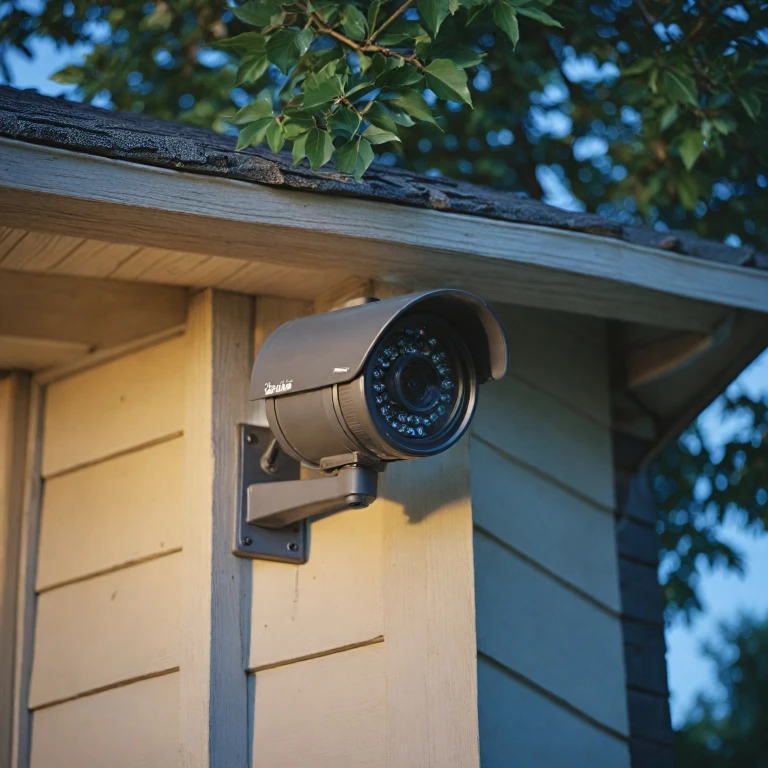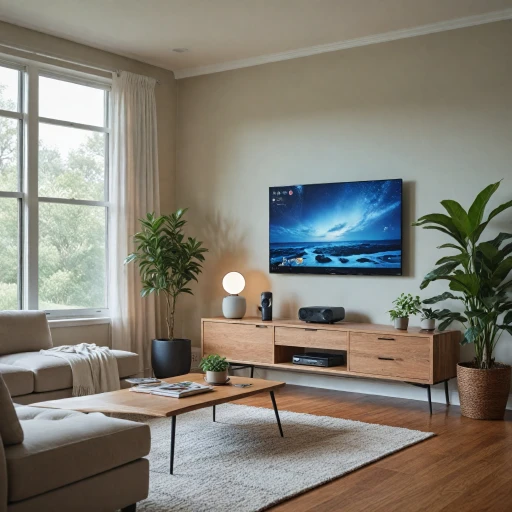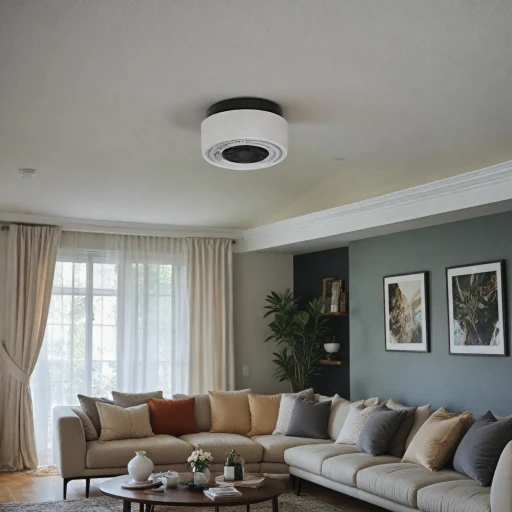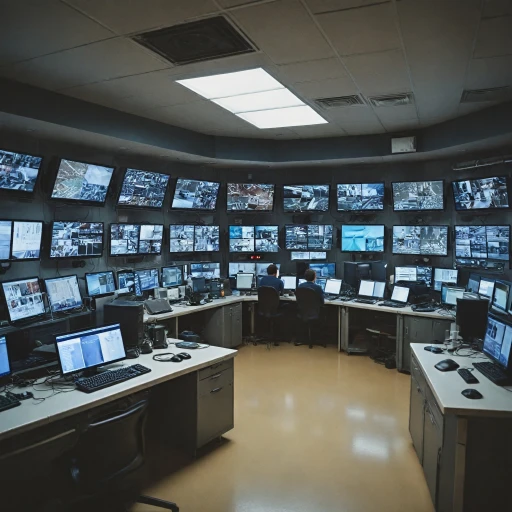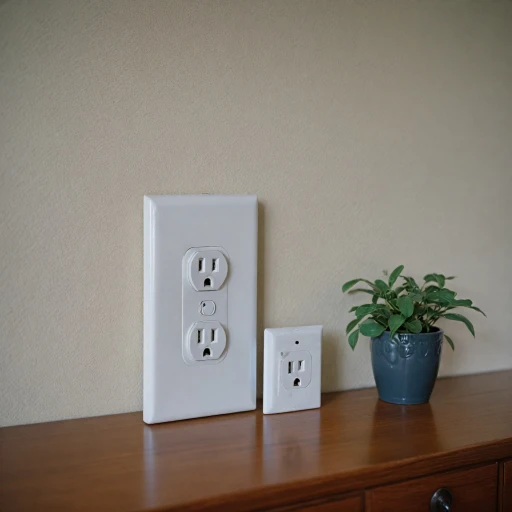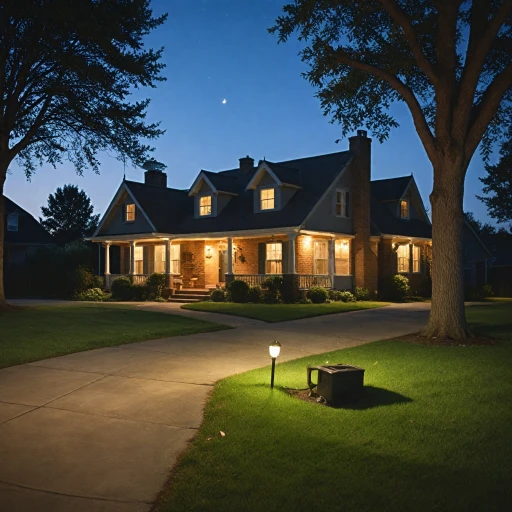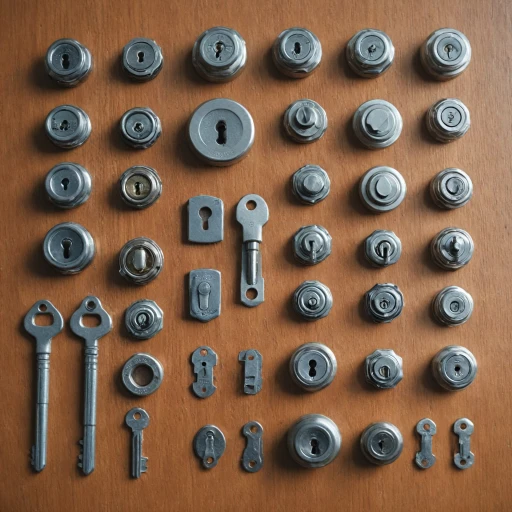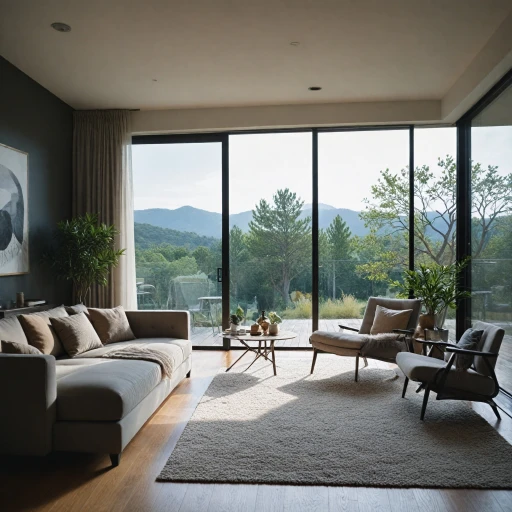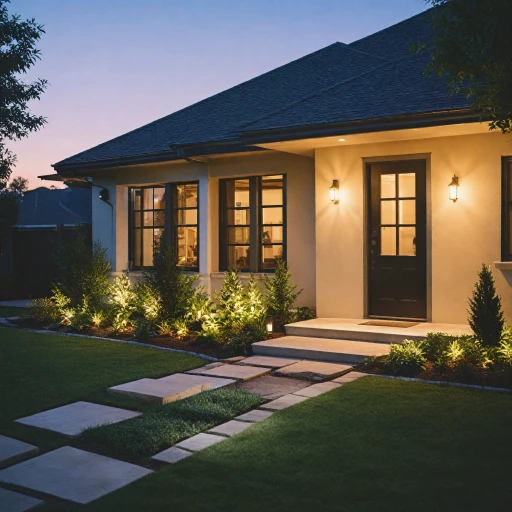
What are IR Lights?
Deciphering the Basics of Infrared Light
Home security has come a long way with technological advancements aiming to make our homes safer and more secure. Infrared (IR) lights are a crucial component in enhancing security, especially when it comes to capturing clear images in low-light conditions. But what exactly are IR lights and how do they function? IR lights, often known as infrared illuminators, emit infrared radiation that is invisible to the naked eye but can be detected by security cameras. These infrared LEDs are key in illuminating environments in the dark, enabling night vision capabilities without disturbing the human eye. They work by enhancing what a standard camera can capture, providing a clearer assessment of the area even in the absence of regular light. Understanding their operation isn't just about knowing that they emit a kind of invisible light; it's also about realizing their role in long-range surveillance and the continuous evolution in their design and application. Many modern security cameras now come equipped with an option for an infrared light kit that offers intensity control for varying illumination needs. This means your camera can work just as effectively during night hours as it does during the day. Infrared lights contribute immensely to enhancing home security systems, being pivotal in capturing clear footage at night. As the second section explores, they play an essential role in night vision, affording you peace of mind by ensuring your security cameras are operational around the clock. For more on integrating IR technology into your home security system, check out our detailed look at enhancing home security with night vision spy video cameras here.The Importance of IR Lights in Night Vision
The Crucial Role of Infrared Lights in Night Vision
When it comes to enhancing your home security, having a comprehensive night vision solution is essential. Infrared lights play a pivotal role in allowing security cameras to capture clear images even in complete darkness. This is achieved through the use of advanced infrared LED technology, which emits light that is invisible to the naked eye but can be detected by the camera's sensors.
The presence of these IR lights enables cameras to maintain clarity and detail in the dark, providing a reliable means of monitoring your property at all times. Various infrared illuminator kits available on the market come with features like intensity control and long-range illumination, ensuring your security measures are not just effective but also adaptable to different lighting conditions.
Moreover, the integration of advanced features such as outdoor infrared illuminators or flood lights, can significantly enhance the quality of the footage obtained at night. Whether it's a simple LED light for a small area or a more comprehensive illuminator kit for larger spaces, the variety of options available caters to diverse needs, be it for regular home surveillance or more specialized applications like night hunting.
Types of IR Lights Used in Security Cameras
Variety of Infrared Lights: Selecting the Best for Your Needs
When it comes to home security cameras, choosing the appropriate infrared (IR) light is crucial. There are several options designed to optimize performance for varying environments and specific applications. Let's delve into the most common types of IR lights used in security cameras.- LED-based Infrared Lights: Most home security cameras are equipped with infrared LED lights. These lights are known for their long range and energy efficiency, offering reliable night vision capabilities. The LED lights are popular because they deliver a high-intensity infrared light output, essential for capturing clear images in dark conditions.
- Infrared Illuminators: While some cameras come with built-in IR LEDs, external infrared illuminators can be added for enhanced visibility. These illuminators are especially useful for outdoor use, offering an extended range that surpasses standard built-in options. Models, such as the Sniper Hog series, provide variable intensity control and are often a go-to for night hunting or security applications requiring a broader flood of light.
- Range-Specific Lights: For situations that demand specific illumination distances, consider range infrared lights, like those in the long range category. These ensure detailed imagery over greater distances, perfect for monitoring large outdoor areas or open fields.
- Infrared Light Kits: These kits offer a comprehensive solution, typically including multiple infrared illuminators and mounts. They are ideal for those seeking a complete package to enhance both the night vision and security camera capabilities.
Factors to Consider When Choosing IR Lights
Considerations for Selecting Optimal Infrared Lights
When purchasing a home security camera, the type of infrared lights you choose can significantly impact the effectiveness of your night vision capabilities. Here are several key factors to consider:- Intensity Control: Adjustable intensity control in infrared LED illuminators allows you to fine-tune the brightness according to the environment, enhancing the clarity of the images captured at night.
- Range and Coverage: Depending on the area that needs surveillance, you may require infrared lights with long-range capabilities. A long-range infrared LED can cover significant distances, ideal for large properties or outdoor settings.
- Type of Infrared Light: Different products come equipped with varying types of IR lights, such as regular LED illuminators and floodlights. Flood lights provide broad coverage, while pointed options like a sniper hog are better for focused areas.
- Compatibility with Camera: Ensure that the IR light is compatible with your security camera system. Some security cameras come with their own LED light kit, while others may require an additional infrared illuminator kit.
- Durability and Weather Resistance: Outdoor infrared lights should be weather-resistant to withstand harsh conditions. Opt for products designed specifically for outdoor use, which often provide better longevity and consistent performance.
- Price and Package Options: Consider the regular price and available package deals. Product offerings can differ, such as free shipping or bundled kits that offer added value.
- Color and Aesthetic: While the primary purpose is functionality, you may want to consider the design and color of the IR lights, such as those available in illuminators white, to blend with your home's exterior.
Common Challenges with IR Lights
Combatting Common Infrared Security Challenges
Security camera users often face a series of challenges associated with infrared, or IR, lights. Understanding these issues can help in making informed decisions when setting up or maintaining a security system. Here are some prevalent hurdles and potential solutions:- Reflection Issues: IR lights can sometimes reflect off surfaces like windows or bright walls, creating a glare in the camera feed that hinders night vision. Consider using an outdoor infrared illuminator, which is typically more effective in reducing glare from reflective surfaces.
- Limited Range: The effectiveness of IR lights often depends on their range. Some cameras come with built-in lights that don't suffice for long range night vision. Opting for a range illuminator or an extended range infrared led kit can significantly enhance the area covered, providing better security for larger properties.
- Variable Intensity: Certain environments may require adjustable light intensity to avoid oversaturation, which can obliterate details in the footage. Many modern infrared illuminators come with intensity control options, allowing users to adjust the brightness according to their specific needs.
- Environmental Factors: In outdoor setups, weather conditions such as fog, rain, or snow can interfere with infrared lights. Using a specialized outdoor infrared kit can help mitigate these effects, as they are designed to withstand various weather conditions while continuing to provide clear images.
- Cost Considerations: Although a high-quality LED light or illuminator might seem costly at first, the regular price is often justified by the long-term benefits, such as lower maintenance costs and enhanced security. Some retailers also offer options with free shipping, further reducing the overall expense.

